RESISTANCE CINEMA
Presents
“THE CENTRAL PARK FIVE”
a film by KEN BURNS, DAVID McMAHON, & SARAH BURNS,
A production of Florentine Films and WETA Television, (2012, 120 min)
WHEN: Sunday September 22, 2013 1:15pm
WHERE: Community Church NY, Gallery Room, 28 East 35th St. btwn Park & Madison Aves.
ADMISSION: Free, donations appreciated
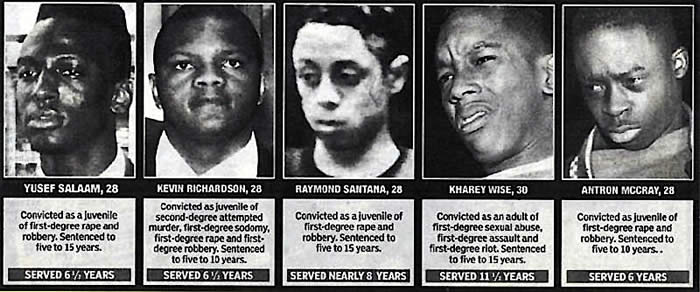 Resistance Cinema would like to welcome everyone back after the summer break. We do hope you all are refreshed and ready as we are to confront the issues of our time through documentary film. We start the Fall season with a powerfully riveting film about one of the most famous cases in recent NYC history: The Central Park Jogger Case. In light of the Trayvon Martin case, the issue of racial profiling and the controversial Stop And Frisk policy of the NYPD, this is a particularly relevant film made by an award winning team of filmmakers.
Resistance Cinema would like to welcome everyone back after the summer break. We do hope you all are refreshed and ready as we are to confront the issues of our time through documentary film. We start the Fall season with a powerfully riveting film about one of the most famous cases in recent NYC history: The Central Park Jogger Case. In light of the Trayvon Martin case, the issue of racial profiling and the controversial Stop And Frisk policy of the NYPD, this is a particularly relevant film made by an award winning team of filmmakers.
On April 20, 1989, the body of a woman barely clinging to life is discovered in Central Park. Within days,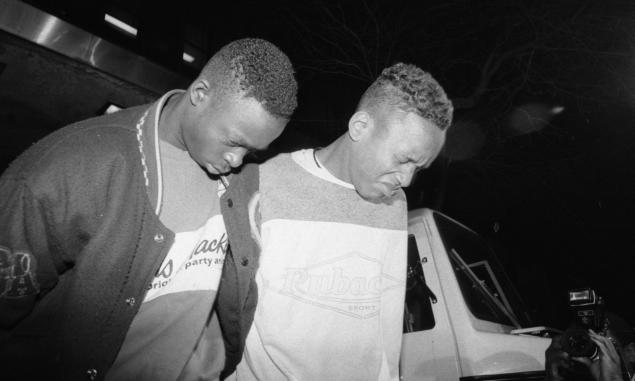 teenagers Antron McCray, Kevin Richardson, Raymond Santana, Korey Wise, and Yusef Salaam confess to her rape and beating after many hours of aggressive interrogation at the hands of seasoned homicide detectives.
teenagers Antron McCray, Kevin Richardson, Raymond Santana, Korey Wise, and Yusef Salaam confess to her rape and beating after many hours of aggressive interrogation at the hands of seasoned homicide detectives. 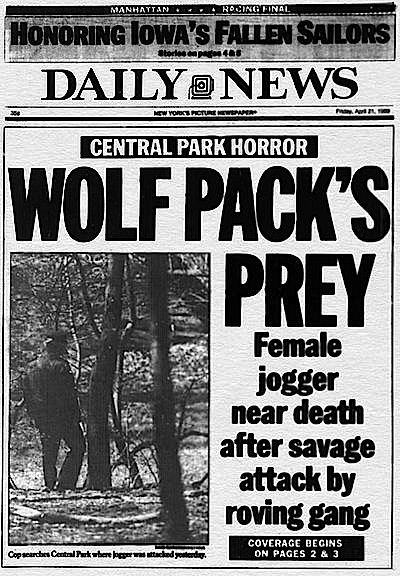 The five serve their complete sentences, between 6 and 13 years, before another man, serial rapist Matias Reyes, admits to the crime, and DNA testing supports his confession. The city is stunned with many refusing even then to admit the innocence of those they had condemned to prison. THE CENTRAL PARK FIVE chronicles the case for the first time from the perspective of the five teenagers whose lives were upended by this miscarriage of justice.
The five serve their complete sentences, between 6 and 13 years, before another man, serial rapist Matias Reyes, admits to the crime, and DNA testing supports his confession. The city is stunned with many refusing even then to admit the innocence of those they had condemned to prison. THE CENTRAL PARK FIVE chronicles the case for the first time from the perspective of the five teenagers whose lives were upended by this miscarriage of justice.
Set against the backdrop of a city beset by violence and facing deepening rifts between races and classes, THE CENTRAL PARK FIVE intertwines the stories of these five young men, the victim, police officers and prosecutors, and Matias Reyes, unraveling the forces behind the wrongful convictions. The film illuminates how law enforcement, social institutions,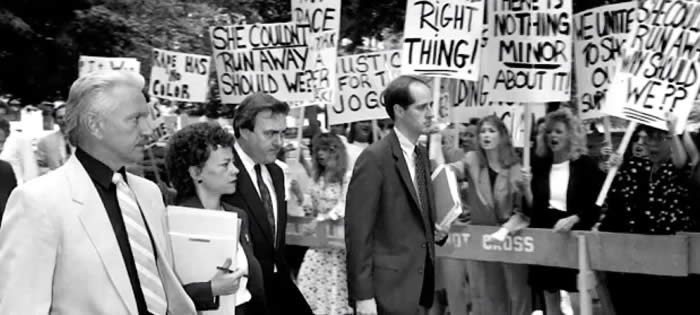 and media undermined the very rights of the individuals they were designed to safeguard and protect. A kind of mass hysteria enveloped the city as all manner of pundits and politicians demanded revenge and tabloids plastered the city with violent imagery of “wolfpacks” and “wilding”.
and media undermined the very rights of the individuals they were designed to safeguard and protect. A kind of mass hysteria enveloped the city as all manner of pundits and politicians demanded revenge and tabloids plastered the city with violent imagery of “wolfpacks” and “wilding”.
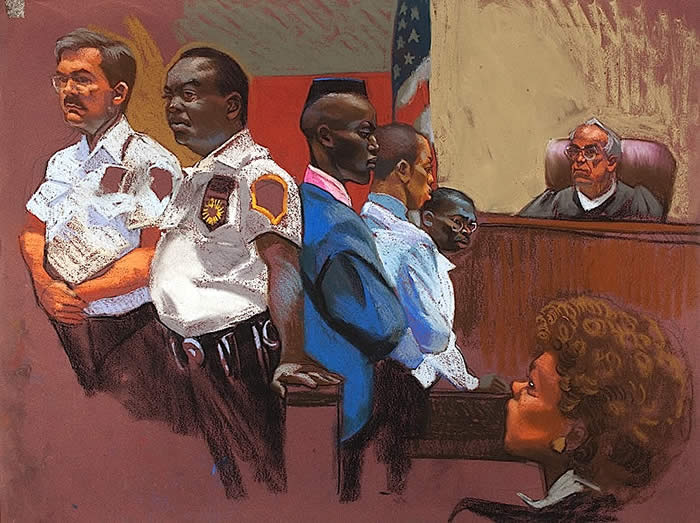 "This tragedy reminds us how much we struggle to come to terms with America's original sin, which is race," said Ken Burns. "One only need to look at the history books to understand that, unfortunately, the Central Park Five are not unique in American history."
"This tragedy reminds us how much we struggle to come to terms with America's original sin, which is race," said Ken Burns. "One only need to look at the history books to understand that, unfortunately, the Central Park Five are not unique in American history."
"This case is a lens through which we can understand the on-going fault-line of race in America," said Sarah Burns, who also wrote The Central Park Five: A Chronicle of a City Wilding, (Knopf, 2011). "These young men were convicted long before the trial, by a city blinded by fear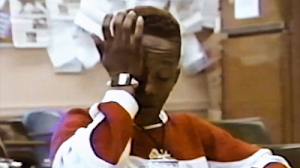 and, equally, freighted by race. They were convicted because it was all too easy for people to see them as violent criminals simply because of the color of their skin."
and, equally, freighted by race. They were convicted because it was all too easy for people to see them as violent criminals simply because of the color of their skin."
"Ultimately The Central Park Five is about human dignity," said David McMahon. "It is about five young 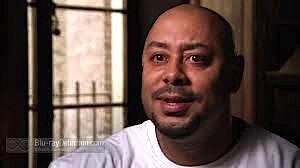 men who lose their youth but maintain their dignity in the face of a horrific and unimaginable situation."
men who lose their youth but maintain their dignity in the face of a horrific and unimaginable situation."
In 2002, based upon Matias Reyes's confession, a judge vacated the original convictions of the Central Park Five. A year later, the men filed civil lawsuits against the City of New York, and the police officers and prosecutors who had worked toward their conviction. That lawsuit remains unresolved.
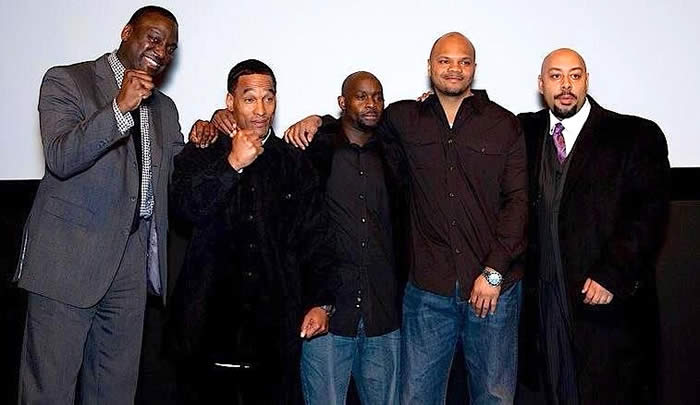
Among those interviewed in the film are: The Central Park Five and members of their families, New York City Mayors Ed Koch and David Dinkins, journalists Jim Dwyer, Natalie Byfield and LynNell Hancock, the Reverend Calvin Butts, and historian Craig Steven Wilder.